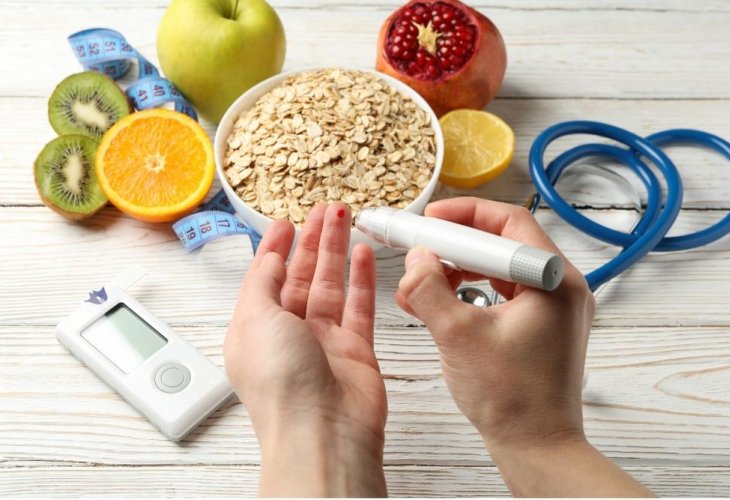Ahead of World Diabetes Day: How to Prevent Diabetes Complications
When blood sugar levels are not balanced, diabetics are exposed to an increased risk of future complications. Here are some steps you can take to prevent them.
 (Photo illustration: Shutterstock)
(Photo illustration: Shutterstock)In Israel, approximately half a million people are living with diabetes, and another half a million are pre-diabetic. Diabetes is a progressive disease that can lead to future complications if blood sugar levels are not kept balanced. This week marks World Diabetes Day, and here are some important tips to know in order to prevent complications.
Weight Loss
If you're overweight, losing just a few kilograms can enhance the body's ability to use insulin efficiently. This helps lower blood sugar levels and improves blood pressure and lipid readings. The goal should be to burn more calories than you consume.
Good Sleep
Too much or too little sleep can increase appetite and cravings for high-carb foods, potentially leading to weight gain and a higher risk of complications like heart disease. Aim for seven to eight hours of sleep per night.
Stop Smoking
Diabetics and pre-diabetics who also smoke are twice as likely to die prematurely compared to those who don't. Quitting smoking benefits the heart and lungs and also reduces blood pressure and the risk of stroke, heart attack, nerve damage, and kidney diseases.
Exercise
Choose an activity you enjoy—walking, dancing, cycling, or even just pacing during a phone call. Physical activity can help reduce cardiovascular risks, cholesterol, and blood pressure while helping you maintain weight. Exercise also relieves stress and may help reduce diabetes medications.
Choosing Carbohydrates Wisely
There's no need to avoid carbohydrates, but it is crucial to choose those that break down slowly in the body, providing a steady energy source—like whole grains, beans, nuts, and fresh vegetables and fruits. Also, regulate the amount of carbohydrates you consume at each meal. According to a study conducted at Wolfson Hospital last year, diabetics should ensure a hearty breakfast and minimize or avoid carbohydrates in the evening.
Monitoring Blood Sugar
Regular blood glucose checks can help prevent diabetes complications, such as neuropathic pain, or prevent worsening conditions. Additionally, continuous glucose monitoring without pricks can show how foods and activities affect the body and whether the treatment plan is effective.
Doctor Visits
To maintain balanced values, it's recommended to meet with a doctor every three months. Digital medical services allow a doctor to receive a diabetic report without visiting the clinic. Furthermore, periodic checks are vital since they provide an opportunity to significantly change diabetes management.
Stress Management
Stress can cause blood glucose levels to rise. It's recommended to eliminate any physical or mental stress and learn coping techniques. Relaxation techniques, such as breathing exercises, yoga, and meditation, can be effective for diabetics.
Avoid Salt
Reduce the amount of salt in foods. This can help lower blood pressure and protect the kidneys. Furthermore, it's possible to achieve great flavors by seasoning with herbs and spices instead of salt. Also, aim to eat fresh and unprocessed foods.
Risk of Various Diseases
Heart diseases can be a severe complication of diabetes, so those at risk should conduct periodic checks of glycated hemoglobin, blood pressure, and cholesterol levels.
Injury Avoidance
Diabetes increases the risk of infection and slows recovery. Therefore, it's recommended to quickly address even simple cuts and scratches. Properly clean the wound, use antibiotic cream and a sterile bandage. Additionally, apply unscented moisturizer to your feet, but not between the toes, and wear seamless cotton socks.
Include as Many "Superfoods" as Possible in Your Diet
While there's no single formula for a diet, it's recommended to incorporate superfoods like sweet potatoes, omega-3-rich fish, and dark leafy greens.
Prof. Julio Weinstein is the Director of the Diabetes Unit at Wolfson Hospital and a senior diabetes doctor at the DMC Diabetes Center.

